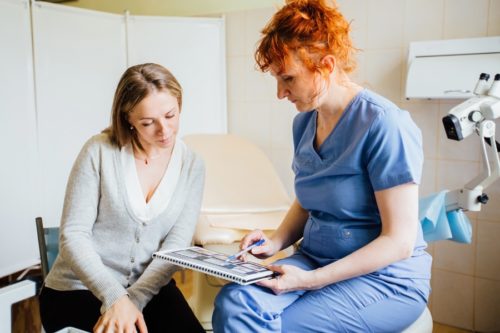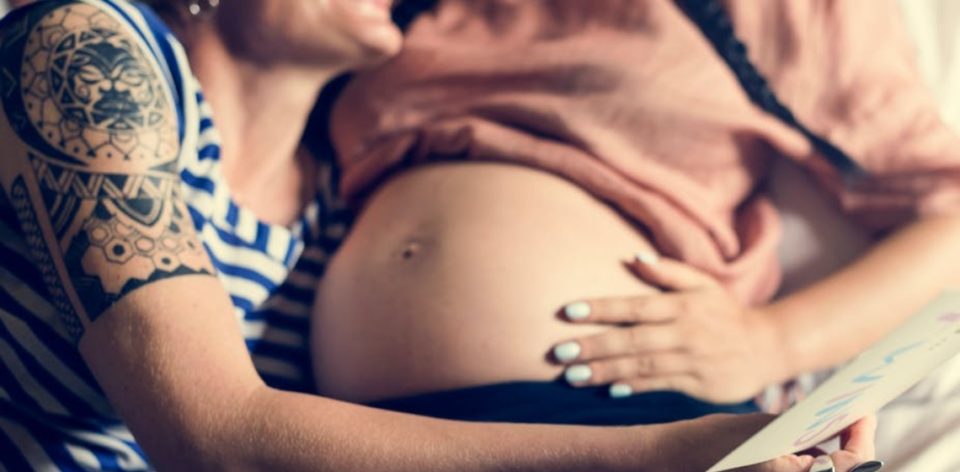In the second installment of our series we are going to take a look at the options lesbian couples considering artificial insemination have. In this respect, Hungarian legislation is extremely strict and discriminatory, so it might be worth seeking out a solution abroad - this is what we aim to help with in this article.
As we mentioned in our previous article, in 2021 adoption was made virtually impossible for same-sex couples, leaving artificial fertilisation as the only route. The majority of academic literature defines artificial fertilisation as when the pregnancy is made possible by medical intervention. Another definition is when the egg is artificially fertilised without a need for copulation. The latter can include fertilisation carried out at home, without copulation.
Fertilisation carried out at home, for example injecting the sperm with a syringe, is the easiest way for a fertile lesbian. The process itself seems simple, the problems mostly start to stack up after the successful conception. The sperm donor can request paternal rights and the mother might be convicted of illegal use of a human body.
Clinical fertilisation
One of the main methods of fertilisation is insemination, carried out by injecting the sperm. One type of insemination is known as donor insemination, when the sperm is acquired from a sperm bank. The other main type is in vitro fertilisation or IVF. Here the fertilisation of the egg happens outside of the body. A subcategory of IVF is the so-called reciprocal IVF or ROPA method, where the fertilised egg of one mother is planted into the womb of the other, resulting in ‘shared motherhood’. It’s hardly surprising that this method is highly favoured by lesbians, since it allows both partners to take a physical part in the process. Exactly which method one might choose or which one is available largely depends on health, age and financiális situation.
Choosing the country
In Hungary artificial insemination is available for married couples, registered straight couples, single women either over 35, or with serious fertility issues. Those in a lesbian relationship who have no health-related problems with conception must find a solution abroad. Luckily there are several European countries where fertility clinics gladly accept lesbian clients too. ILGA-Europe’s rainbow map gives a good general overview of countries where artificial insemination is legal for singles or same-sex couples. In this article we’re focusing on and sampling from these countries.

Things to consider
Since the legislation concerning artificial insemination differs from country to country, the most important aspect to review before choosing a destination is the country’s legal climate.
Taking a look at a clinic’s website can be a good starting point since they usually publish their price list, which is (in better cases) an itemised list of what exactly we’re getting for that money. It is important to know precisely what services are included in the base price of a procedure. In many cases medication, tests and consultations cost extra money, not to mention the travel expenses and accommodations. Another important question is whether the clinic has its own sperm bank, and if not, what is their source. There are some clinics where certain services are only available to foreign clients if they have a local place of residence, and some cannot provide sperm at all. Looking up successful pregnancy rates is also a good idea, and if this is not made public on the clinic’s website, make sure to ask about it on the first consultation. Most clinics offer a free first consultation, which is a good opportunity to take.
Austria
According to Austrian law, sperm donation is semi-anonymous. This means that the child who reaches the 14 years of age can request the reveal of the donor's identity.
One of the greatest advantages of Tiny Feet’s Wiener Neustadt Clinic is that it’s only 30 kms away from the Hungarian-Austrian border and they have Hungarian-speaking staff to make communication easier. Insemination using a sperm donor costs 1350 Euros, while IVF starts at 3220 Euros, plus the cost of medication. The first consultation can happen via phone call, video chat or in person, where all of the client’s questions will be answered in the language of their choice (German, English, Hungarian, or Turkish) - Dr. Rathmanner tells us.
Denmark
Danish legislation allows the sperm donor to choose to remain anonymous or not. The success-rate of Coppenhagen based Vitanova Fertility Center in the case of insemination using a sperm donor, performed on women between the ages of 18-35, is 41%. IVF with a sperm donor starts at 3530 Euros, plus the cost of medication and tests
United Kingdom
According to local legislation, a child of 16 years can request the reveal of the donor’s identity, but the reveal will only go through if the donor consents to it. Create Fertility has 10 locations over the country, the basic IVF package costs 3395 GBP (3920 Euros), plus the money spent on tests and consultations. In the case of women under 35, the success-rate of the Manchester clinic is 32%, and 50% at the St. Pauls clinic.
Finland
In Finland children born of sperm donation have the right to know who the biological father was when they reach the age of 18 if the donor also agrees. Ovumia undertakes artificial insemination up to the age of 46. IVF starts at 2848 Euros, consultations, tests and medication are not included in the price here either, so the full cost is usually around 5000-6000 Euros.
Spain
Sperm donation in Spain is completely anonymous. At Barcelona IVF clinic, IVF and reciprocal IVF both cost 4970 Euros, with an anonymous sperm donor. The rate of successful conception between the ages of 18-35 is 79,3%. Eva Fertility Clinics in Madrid offers similar treatments but have not published exact prices, as each client receives a personalised offer. Success-rates were not made public for the same reason, but applicants are given a so-called ‘success study’.
Reviewing conditions and looking for opportunities in other European countries is also a good idea, as well as listening to the experiences of those who have already gone through the process.

